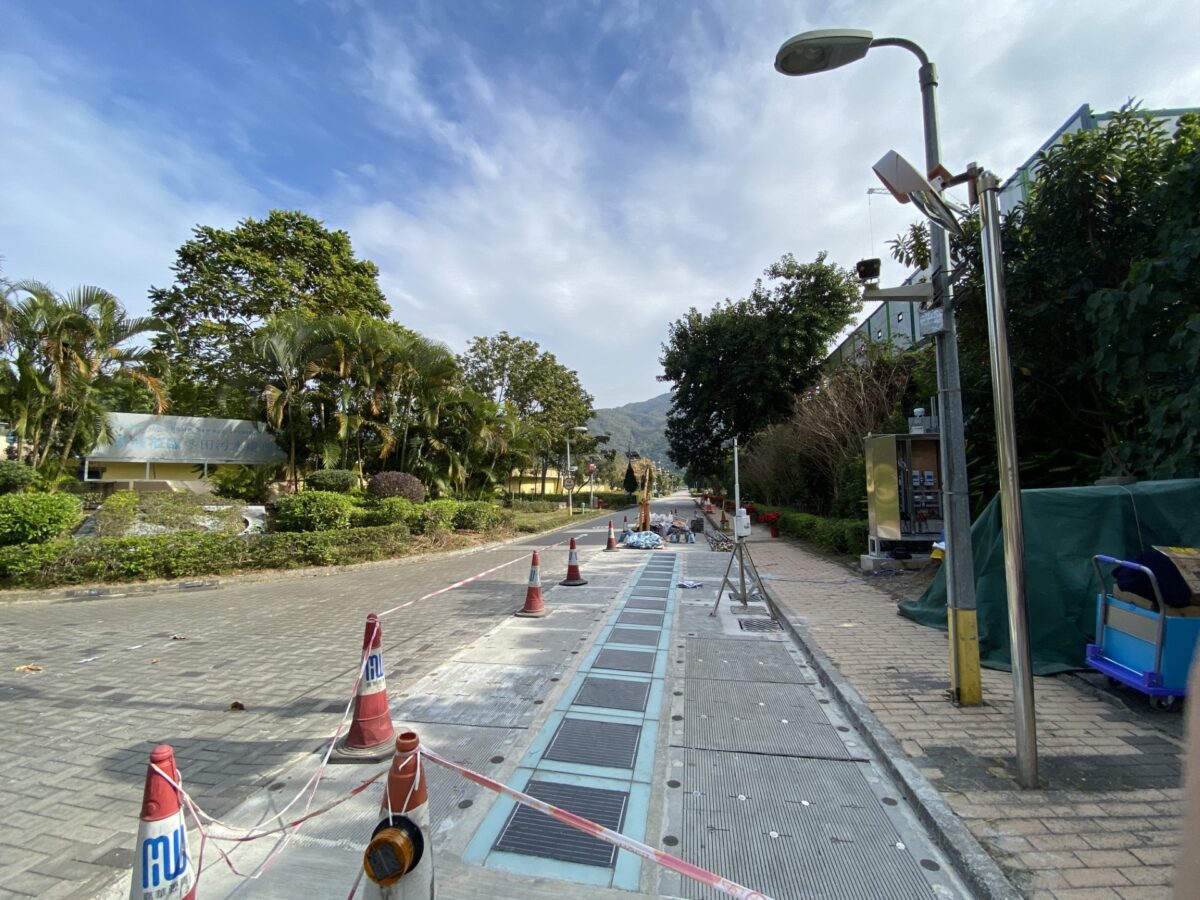Researchers at the Hong Kong Polytechnic University have designed photovoltaic pavement (PVP) for urban environments.
“We have proposed a two-dimension finite element model for PPV module electrical and thermal performance with ground influence,” researcher Tao Ma told pv magazine. “We conducted lab tests to analyze the anti-skid feature and energy output of the pre-fabricated module, as well as parametric analyses on the module design and surrounding ground material.”
The scientists conducted numerical and experimental studies on the potential integrated thermal and electrical performance of a PVP located in Hong Kong. The installation is based on monocrystalline solar modules with a 20% efficiency and a power output of 31.5 W. The PVP uses tempered glass sheets on the front and rear sides for improved structural strength and protection.
“The patterns are added to the front surface of the module for higher anti-skid properties compared to the resin,” the researchers said. “The damp layer with backfilling materials of air and epoxy resin (EP) is used instead of the hollow structure, for better support.”
Asphalt concrete was chosen as the surface ground, and input parameters including weather, site conditions, PV module output, module surface temperature, and surrounding road temperature were selected.
The scientists found that the PVP could reach a potential electrical output of 0.68 kWh/m2 and an efficiency of 14.71%. They said the epoxy resin filling reduces the annual maximum PVP module surface temperature by 8.4%, and noted that the average heat island effect alleviation could reach 13.16 C.
Popular content
The research group conducted other simulations for PVPs in Shanghai and 255 other Chinese cities. They found that electricity potential could range from 0.70 kWh/W to 1.83 kWh/W, with cities in western and northeastern China showing higher PV generation potential.
“The pavement cost has not been estimated so far, but commercial production is being considered,” Ma stated.
The researchers presented their new technology in “Simulation and experimental study on the energy performance of a pre-fabricated photovoltaic pavement,” which was recently published in Applied Energy.
In 2019, researchers at Hong Kong Polytechnic University developed PV floor tiles designed for pavements and cycling tracks. The tiles were tested on a ‘green deck' in Hong Kong and have shown satisfactory solar energy conversion, anti-slip performance, heat resistance, and strength.
This content is protected by copyright and may not be reused. If you want to cooperate with us and would like to reuse some of our content, please contact: editors@pv-magazine.com.



This is an amazing idea. Think of all the sidewalks, plazas, courtyards, and so much more that could produce energy while still having other uses. Let’s hope this technology continues to grow and develop quickly!
Having walked on the ‘green deck’ in Hong Kong with the previous PV floor tiles, I was already impressed, but this new leap in efficiency is truly groundbreaking. The potential electrical output and the significant heat island effect reduction make this innovation a game-changer. The future of urban environments definitely shines brighter with this research. Can’t wait to see this tech commercialized!
This development in photovoltaic pavement by the researchers at Hong Kong Polytechnic University is absolutely fascinating. I am impressed by the potential electrical output and the potential for heat island effect alleviation – this could be a game changer for urban environments! I’m eager to see how these will be implemented commercially and the subsequent impact it could have on our renewable energy capabilities.